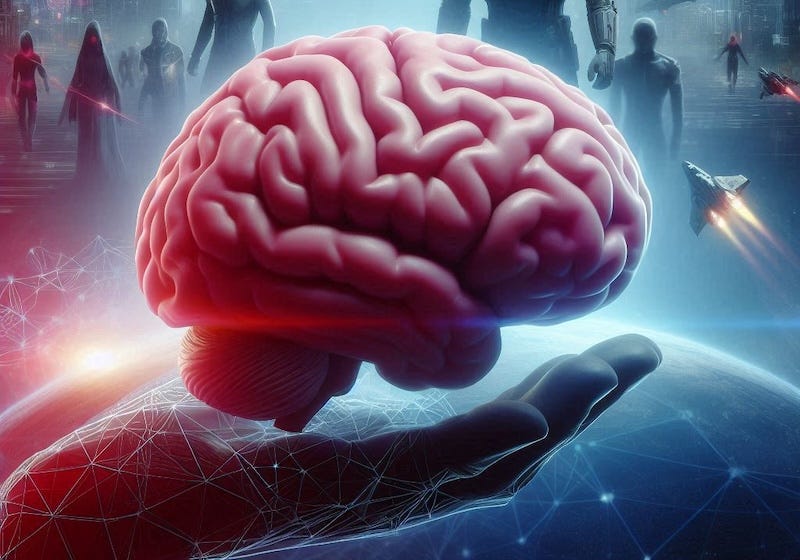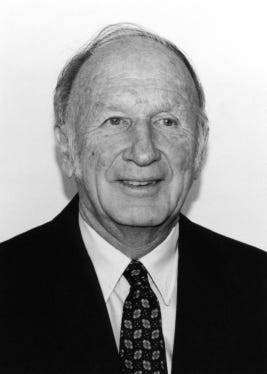Exploring Determinism and Free Will: A Philosophical Inquiry
Written on
Chapter 1: Understanding Determinism
The concept of determinism posits that every event, including human choices and actions, is predetermined. This article delves into the intricacies, historical background, and practical implications of determinism.

It’s important to note that some views presented here are subjective. Therefore, I encourage you to draw your own conclusions regarding determinism.
Section 1.1: The Notion of Laplace's Demon
Imagine an all-knowing being, often referred to as Laplace's Demon, who possesses complete knowledge of the universe's history and all its governing laws.

If such a being existed, it could foresee every future event, including your own actions. This scenario implies that if determinism holds true, free will cannot exist, as both concepts are traditionally viewed as mutually exclusive.
Yet, the challenge remains: is determinism more of a philosophical idea than a scientific one? For a concept to be scientific, it should be capable of being disproven. Given our inability to accurately predict weather patterns or significant global events, skepticism about determinism arises. For instance, just hours before a devastating storm struck southern England in 1987, a BBC forecaster confidently stated that no hurricane was imminent.
Section 1.2: Historical Perspectives on Determinism
Interestingly, I initially believed that determinism was a modern idea, but upon reflection, I realized that ancient Greek philosophers had already begun contemplating it.
Ancient Greek Philosophers
During the 6th and 7th centuries BCE, thinkers like Democritus and Leucippus laid the groundwork for determinism. They suggested that all events result from the mechanical interactions of atoms.
Buddhist Perspectives
Buddhism introduces a similar concept known as Dependent Origination, which posits that all phenomena arise in a network of interdependent causes and effects.
Insights from Ancient China
The ancient Chinese text, Yi Jing (or I Ching), suggests that a ‘divine will’ governs the fundamental principles of the universe, while human decision-making also plays a role in how we navigate real-life challenges.
Chapter 2: The Intersection of Science and Determinism
The first video, Determinism vs Free Will: Crash Course Philosophy #24, provides an engaging overview of the philosophical debate surrounding these concepts.
Newtonian Physics
Isaac Newton’s laws of motion and universal gravitation have historically reinforced the notion of determinism. His work allowed for the prediction of various astronomical phenomena, thereby supporting the deterministic view of the universe.

The Quantum Conundrum
While Newtonian physics excels at predicting macroscopic events, it falters at the atomic and subatomic levels. Quantum mechanics introduces probabilities to describe these smaller scales, complicating the deterministic narrative.
The second video, Correctly Understanding the Determinism vs Free Will Argument, further explores these philosophical concepts.
Chaos Theory and Its Implications
Chaos theory reveals how deterministic systems can exhibit seemingly random behaviors. This paradox arises from sensitivity to initial conditions, famously illustrated by the ‘butterfly effect’ proposed by Edward Lorenz.

Section 2.1: Free Will and its Boundaries
Returning to the idea of free will, our lack of omniscience complicates our ability to ascertain initial conditions. Various factors, such as chaos theory and Heisenberg’s uncertainty principle, impede our understanding.
An experiment by Ammon and Gandevia in 1990 highlighted these limitations, revealing that brain stimulation could influence participants' choices without their conscious awareness.

Acknowledgments
This article draws inspiration from a lecture within the University of Plymouth’s Psychology Course. You can find a recording of this lecture on YouTube.
Bibliography
The Primacy of Doubt (2022) by Tim Palmer
- Hardback: (ISBN-13: 9780192843593)
- Paperback: (ISBN-13: 9780192843609)
In this comprehensive book, Palmer traverses from chaos theory to ensemble forecasting in predicting climate change, pandemics, and economic downturns, culminating in a thought-provoking deterministic interpretation of quantum mechanics and existential inquiries.
References
- The Basics of Philosophy
- Wikipedia
If you found this article intriguing, you may also enjoy exploring:
What is Your Personality Type?
Take the Myers-Briggs Type Indicator test to discover more about yourself.
No referral links were utilized in the creation of this content.